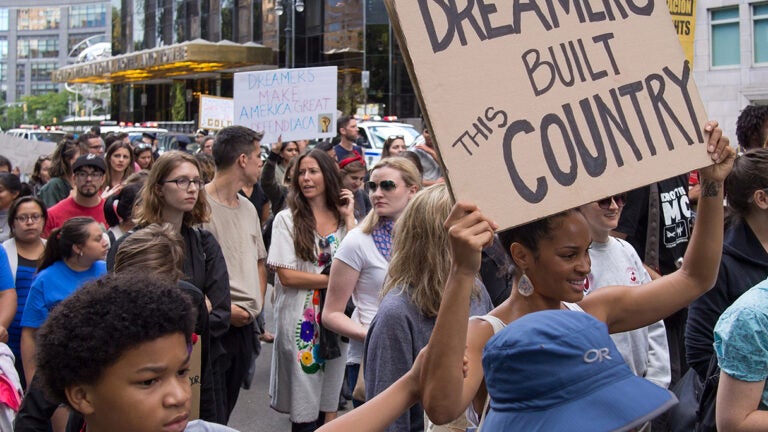
A win for ‘Dreamers’: U.S. Supreme Court decision blocks dismantling of DACA
The U.S. Supreme Court has allowed to remain in effect the Deferred Action for Childhood Arrivals (DACA) policy protecting undocumented immigrants whose families brought them into the country as children.
The decision is a reprieve for about 700,000 “dreamers,” many of whom have closely monitored the Trump Administration’s legal challenge to the 2012 executive order by former President Barack Obama.
Faculty experts at USC Dornsife College of Letters, Arts and Sciences give insight the decision and its implications.
DACA is a temporary fix

“DACA is one of the most important advances in immigrant rights for decades,” said Manuel Pastor, Distinguished Professor of Sociology and American Studies and Ethnicity and director of the USC Dornsife Center for the Study of Immigrant Integration. “It has provided social and economic mobility for nearly 700,000 active recipients — which benefits their families and our broader communities as a whole.”
Pastor, who holds the Turpanjian Chair in Civil Society and Social Change, applauded young leaders for their efforts in support of DACA.
“This a major win for DACA recipients, their families, and our communities — and it is a hard-earned victory by the movement led by bold, young immigrant organizers and allies who fought to keep DACA in place over the last eight years.”
He cautioned, however, that further action is needed, and activists should maintain pressure for positive change. “While celebration is warranted, we also know it does not end here. DACA remains a temporary fix to a long-standing issue, and Congress should take up bills like the Dream and Promise Act to ensure these young Americans immigrants can stay in the only homes they’ve ever known.
“So today, we breathe a sigh of relief. And tomorrow, we take a deep breath before jumping once again into the struggle to ensure that all immigrants are treated with the dignity, respect, and support that they deserve.”
Birthright citizenship remains arbitrary

Nathan Perl-Rosenthal, associate professor of history, spatial sciences and law, is an expert on the history of U.S. immigration policy.
Perl-Rosenthal lauded the decision but noted that a basic issue of U.S. citizenship still needs attention.
“The Supreme Court of the United States’ DACA decision is a victory for fairness and the rule of law in the United States,” he said. “But it leaves unresolved a more fundamental form of inequality: the arbitrary nature of birthright citizenship, which allows the government to ignore the Dreamers’ deep ties to the United States simply because they happened, through no fault of their own, to have been born outside of our borders.”
A historian of the 18th- and early 19th-century Atlantic world, Perl-Rosenthal recently wrote an analysis about birthright citizenship for The Nation.